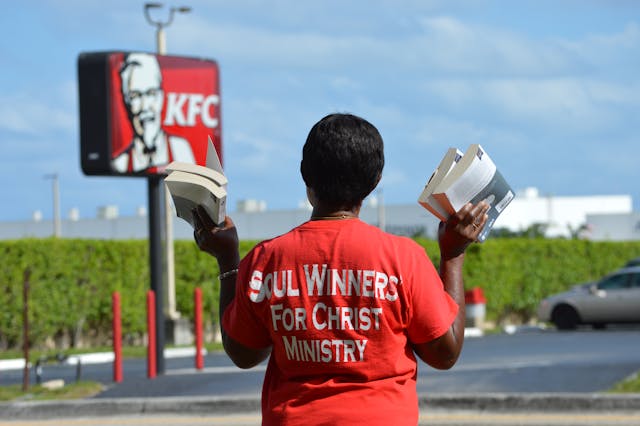In recent years, there has been a growing controversy surrounding the alleged support of Kentucky Fried Chicken (KFC) for Israel. This controversy has led to boycotts and protests against the fast-food chain in various parts of the world, particularly in Muslim-majority countries. In this article, we will explore the facts behind these allegations and examine whether KFC truly supports Israel.
The Ownership Structure of KFC
KFC is a subsidiary of Yum! Brands, a multinational corporation that also owns other fast-food chains such as Pizza Hut and Taco Bell. Yum! Brands is headquartered in the United States and operates in over 145 countries worldwide.
It is important to note that KFC is primarily a franchise operation, meaning that most of its restaurants are owned and operated by local franchisees. These franchisees are responsible for the day-to-day operations of their respective restaurants and make decisions regarding their local operations.
The Alleged Support for Israel
The main allegation against KFC is that its parent company, Yum! Brands supports Israel through their investments and partnerships. In January 2024, the Boycott, Divestment, Sanctions (BDS) movement listed KFC’s sister company, Pizza Hut, as an “organic boycott target” due to the “brands’ complicity in Israel’s genocide and apartheid against Palestinians.”
The BDS movement claims that Yum! Brands is known for its investments in Israeli startups, which they believe contributes to Israel’s occupation of Palestinian territories. However, it is important to note that these allegations are not supported by clear evidence.
The Impact of Boycotts on KFC
The controversy surrounding KFC’s alleged support for Israel has led to boycotts and protests in various countries, particularly in the Middle East and North Africa. In 2024, the opening of a KFC branch in Algeria was met with nationwide protests, leading to the temporary closure of the restaurant.
Similar incidents have occurred in other countries as well. In Iraq, two KFC restaurants in Baghdad were attacked within a 48-hour span, with Iraqi police suspecting an anti-Israel motive behind the attacks. In Malaysia, more than 100 KFC outlets were forced to close temporarily due to boycotts.
These boycotts have had a significant impact on KFC’s operations in the affected regions. According to a report by The Business Times, anti-Israel boycotts have been hurting McDonald’s and KFC in Asia, the Middle East, and some parts of Europe. The report states that the impact was particularly pronounced in the Middle East and Muslim-majority countries like Indonesia and Malaysia.
KFC’s Response to the Controversy
KFC has not directly addressed the allegations of supporting Israel. The company has remained largely silent on the issue, with its press department declining to comment on the story of the KFC branch closure in Algeria.
However, it is important to note that KFC is primarily a franchise operation, and the decisions made by its local franchisees may not necessarily reflect the views of the company as a whole. As mentioned earlier, most KFC restaurants are owned and operated by local franchisees who are responsible for their own operations and decision-making.
The Role of Social Media in Spreading Misinformation
Social media has played a significant role in the spread of misinformation and rumors surrounding KFC’s alleged support for Israel. Viral posts and images on social media have fueled the controversy, leading to widespread boycotts and protests against the company.
It is crucial for individuals to verify the accuracy of information before sharing or acting upon it. Relying on reputable sources and fact-checking websites can help combat the spread of misinformation and prevent the escalation of unnecessary controversies.
Read More: Costa Coffee and the Israel Boycott
The Importance of Separating Business from Politics
The controversy surrounding KFC’s alleged support for Israel highlights the importance of separating business from politics. While individuals have the right to express their political views and engage in boycotts, it is important to ensure that these actions are based on factual information and do not unfairly target businesses that are not directly involved in political conflicts.
Moreover, boycotts and protests against businesses can have unintended consequences, such as harming local franchisees and employees who may not be directly involved in the alleged wrongdoing. It is crucial to consider the broader impact of such actions and ensure they are proportionate and justified.
Final Words
The controversy surrounding KFC’s alleged support for Israel is a complex issue that requires careful examination of the facts. While the allegations are not supported by clear evidence, the controversy has led to significant disruptions in KFC’s operations worldwide.
Individuals must rely on reputable sources and fact-checking websites when evaluating such allegations. Separating business from politics and ensuring that boycotts and protests are based on factual information can help prevent the escalation of unnecessary controversies and ensure that businesses are treated fairly.
Ultimately, the KFC controversy serves as a reminder of the need for open and honest dialogue on sensitive political issues, and the importance of finding constructive solutions that address the root causes of conflicts while minimizing collateral damage.
Read More: Does Cadbury Support Israel?



